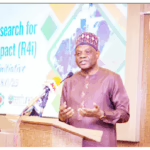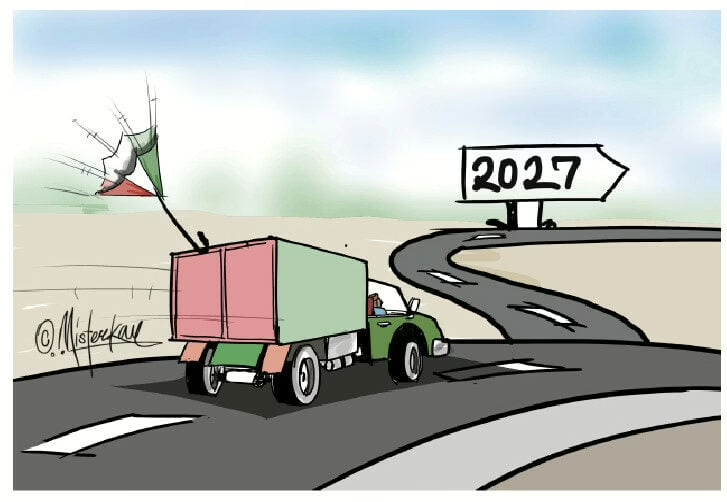Revitalizing the PDP: A Renewed Quest for Political Relevance Ahead of 2027
The Peoples Democratic Party (PDP), Nigeria’s main opposition, is intensifying efforts to demonstrate its vitality and readiness to challenge the ruling All Progressives Congress (APC) in the upcoming 2027 general elections. Recent gatherings, including the governors’ forum in Zamfara State and the National Executive Council (NEC) meeting in Abuja, reaffirmed the party’s commitment to steering the nation away from APC’s governance.
Strategic Shifts: Zoning the Presidential Ticket to the South
Among the pivotal outcomes of these meetings was the decision to zone the PDP’s 2027 presidential candidacy to the southern region. Party leaders present this as a calculated move to reposition the PDP and galvanize support. However, this approach has sparked debate about inclusivity and the party’s internal unity.
Critical Reflections: Can the PDP Reclaim Its Former Glory?
Key questions linger: Has the PDP overcome the internal divisions that once fragmented its ranks and diminished its influence? Is the party genuinely prepared to reclaim leadership? Given the widespread economic hardships Nigerians face, can the PDP inspire confidence as a credible alternative? Is the party’s headquarters at Wadata Plaza equipped to deliver transformative change?
Tracing the PDP’s Legacy: Foundations and Achievements
Since Nigeria’s return to democracy in 1999, the PDP has played a significant role in shaping the country’s political and economic landscape. Initially, it was instrumental in consolidating democratic institutions, facilitating peaceful power transitions, and fostering political stability.
Economically, the PDP championed ambitious reform initiatives such as the National Economic Empowerment and Development Strategy (NEEDS) and Vision 20:2020, aimed at accelerating growth and modernization. The party invested heavily in critical infrastructure sectors, including transportation networks, electricity generation, and telecommunications.
Institutionally, the PDP established key agencies like the Economic and Financial Crimes Commission (EFCC), Independent Corrupt Practices Commission (ICPC), and the Sovereign Wealth Fund, which have become pillars in Nigeria’s governance framework.
Economically, Nigeria’s GDP under PDP stewardship expanded impressively-from $57.48 billion in 1999 (ranked 51st globally) to $568.50 billion by 2014 (22nd largest economy worldwide). Despite some controversies, these milestones underscored notable progress before internal party conflicts paved the way for APC’s rise.
The APC Era: Economic Decline and Political Challenges
Nearly a decade under APC rule has seen Nigeria’s economic indicators deteriorate sharply. By 2023, GDP had contracted to $374.95 billion, slipping to 42nd place globally, and further declined to $252.74 billion in 2024, ranking 53rd worldwide. Nigeria also fell to fourth place among Africa’s largest economies, trailing South Africa, Egypt, and Algeria.
During this period, inflation surged, poverty deepened, and many Nigerians grappled with rising costs of essentials such as food, education, and healthcare. The APC’s economic management has been widely criticized for exacerbating these hardships.
Meanwhile, the PDP struggled to mount an effective opposition. Internal disputes and factionalism weakened its ability to hold the ruling party accountable, diminishing its political relevance.
The 2023 elections presented a golden opportunity for the PDP to reclaim power. However, internal sabotage by the so-called G-5 governors, who undermined the party’s presidential candidate, led to a costly defeat. The absence of disciplinary measures against these dissenters further exposed the party’s fragility and lack of discipline.
Controversy Over Zoning: Implications for Party Unity and Electoral Prospects
The PDP’s decision to restrict the 2027 presidential ticket to southern candidates has ignited internal dissent and skepticism. Critics argue this move unfairly sidelines qualified aspirants from other regions and fuels suspicions of manipulation by interests aligned with the APC.
Notably, some proponents of southern zoning previously expressed support for President Bola Ahmed Tinubu, raising concerns about the PDP inadvertently facilitating APC’s reelection strategy. Political analyst Gbenga Olawepo-Hashim described the zoning as a “default mechanism” favoring Tinubu’s campaign.
Given Nigeria’s current economic struggles-marked by soaring food prices, unaffordable education, and widespread poverty-the 2027 election should be a pivotal moment for Nigerians to demand genuine change. Yet, the PDP’s zoning policy appears to undermine this potential by limiting the pool of viable candidates.
Is the PDP Playing into APC’s Hands?
Despite APC’s poor governance record, the PDP has yet to present a compelling alternative vision. Many Nigerians, including party insiders, question the integrity and readiness of the PDP leadership. The zoning decision has only deepened these doubts.
Governor Seyi Makinde of Oyo State, a prominent figure within the G-5 faction, is widely seen as the frontrunner for the PDP ticket. However, his candidacy is viewed by some as advantageous to President Tinubu’s reelection bid, potentially splitting the opposition vote.
With defections of key members like Ume Eno (Akwa Ibom) and Sheriff Oborevwori (Delta) to the APC, the PDP’s internal cohesion is fragile. Excluding strong contenders through zoning risks further weakening the party’s electoral prospects and undermining its historical stature.
Although the PDP still has time before the primaries to recalibrate its strategy, current indications suggest it is aligning more with APC’s interests than offering Nigerians a credible alternative to the ongoing economic and political malaise.
Political Turmoil in Benue State Assembly: A Microcosm of National Challenges
The recent upheaval in the Benue State House of Assembly highlights the volatile nature of Nigerian politics. Following the resignation of former Speaker Hyacinth Danoh, Alfred Ermberga-previously suspended for allegedly orchestrating a leadership coup-was reinstated and appointed Speaker.
Subsequently, Danoh himself was suspended over accusations of attempting to impeach Governor Hyacinth Alia. These suspensions raise troubling questions about the misuse of legislative procedures to stifle constitutional duties. Since impeachment and leadership changes require collective action, penalizing individual lawmakers for initiating such processes undermines democratic governance.


















0 Comments